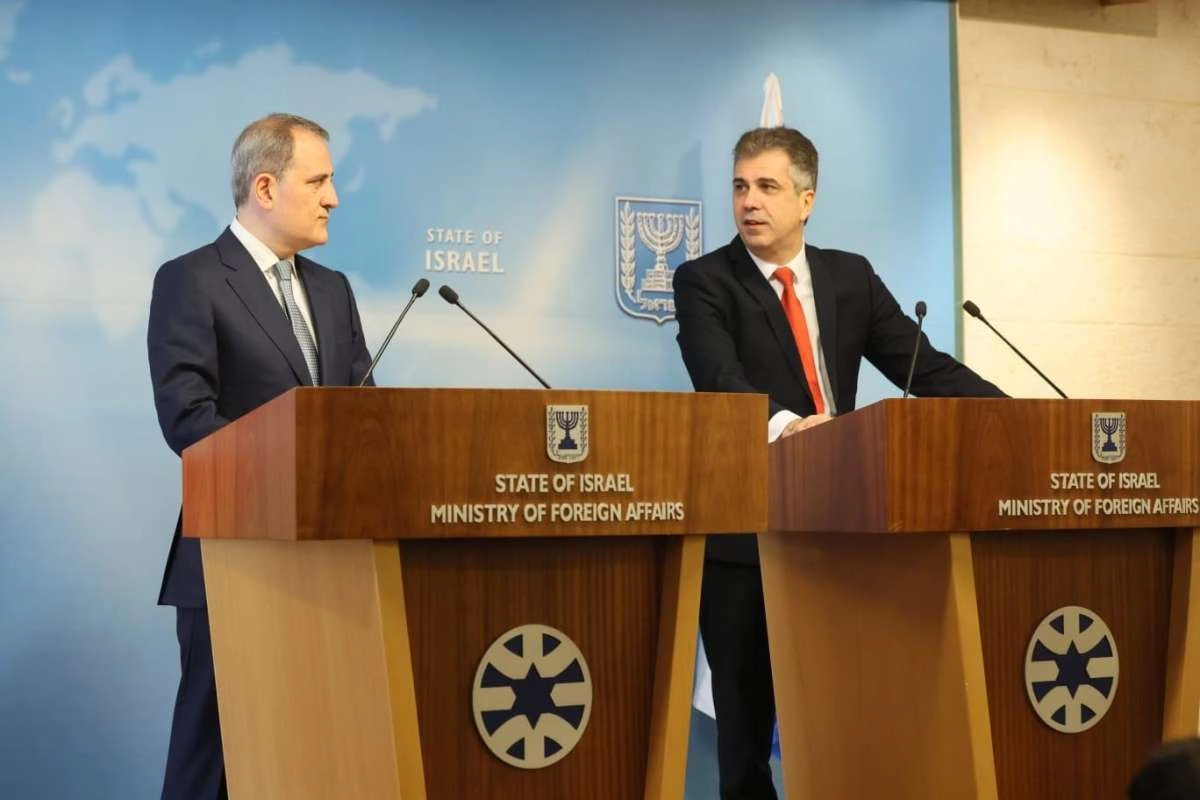
Azerbaijan and Iran Trade Denunciations as Tensions Mount
(OC Media) Officials from Baku and Tehran have exchanged heated accusations after an Iranian commander criticised Azerbaijan following its opening of an embassy in Israel.
On 30 March, a day after Azerbaijan opened its embassy in Israel, Kioumars Heydari, the commander of Iran’s ground forces, stated that Iran would not tolerate the presence of ‘Zionist elements’ on its borders.
Heydari claimed that Azerbaijan had employed ISIS fighters from Syria in the Second Nagorno-Karabakh War of 2020, and that there was no evidence that the fighters had left Azerbaijan.
He finally noted the ‘problem’ of changes to state borders in the region, emphasising that Iran ‘respected’ state borders and would not allow them to be changed.
Tensions have grown between Iran and Azerbaijan in recent months, as Yerevan is allied with Tehran, while Baku has been becoming increasingly tightly allied with Tel Aviv.
Azerbaijan’s Ministry of Defence was quick to condemn Heydari’s accusations as ‘slander’ and ‘nonsense.’
The statement also criticised Tehran for not condemning Armenia following the First Nagorno-Karabakh War.
‘We would like to remind Kioumars Heydari that Armenia occupied the territories of Azerbaijan for 30 years. As a result of this military aggression, the 132-kilometre section of the Azerbaijan–Iran state border was also occupied,’ read the statement.
It noted that Iran had ‘never once’ criticised Armenia, and described Iran as one Armenia’s ‘two main allies.’
‘It is laughable that this accusation was made by a high-ranking military officer of a state that supports terrorism and whose name is known for committing terrorist acts in various countries around the world,’ the statement concluded.
On 29 March, Azerbaijani Foreign Minister Jeyhun Bayramov travelled to Tel Aviv to participate in the opening ceremony of the Azerbaijani Embassy in Israel. Joining him on the podium was his Israeli counterpart, Eli Cohen, who accused Iran of creating instability in the Middle East and financing terrorism.
‘We must act together against Iran. We must not allow Iran to expand its nuclear capabilities,’ said the Israeli minister.
After the opening ceremony, Iran’s Foreign Ministry’s spokesperson, Nasir Kanani, described Cohen’s statement as anti-Iranian, and demanded that Azerbaijan explain its position regarding the Israeli minister’s comments, which he regarded as a ‘tacit confirmation of its anti-Iranian orientation.’
Aykhan Hajizade, the spokesperson for the Azerbaijani Foreign Ministry, stated that Minister Bayramov had not ‘expressed any position against Iran during the press briefing.’
He called the Iranian statement ‘anti-Azerbaijani’ in turn, claiming that, unlike Iran, ‘Azerbaijan has never allowed its territory to be used against third countries.’
‘On the contrary’, said the Azerbaijani spokesperson. ‘Threats and provocations have been made against Azerbaijan from the territory of Iran, such as military exercises along the borders of Azerbaijan, […] the terrorist attack against Azerbaijan’s embassy in Iran, and the initial investigation of the terrorist act against [MP] Fazil Mustafa, a member of the Milli Majlis, can be noted.’
‘This statement is the next step in the Azerbaijan–Iran relations crisis’, said Hajizade. ‘Any aggression and provocation against Azerbaijan will be resolutely prevented.’
Share on social media